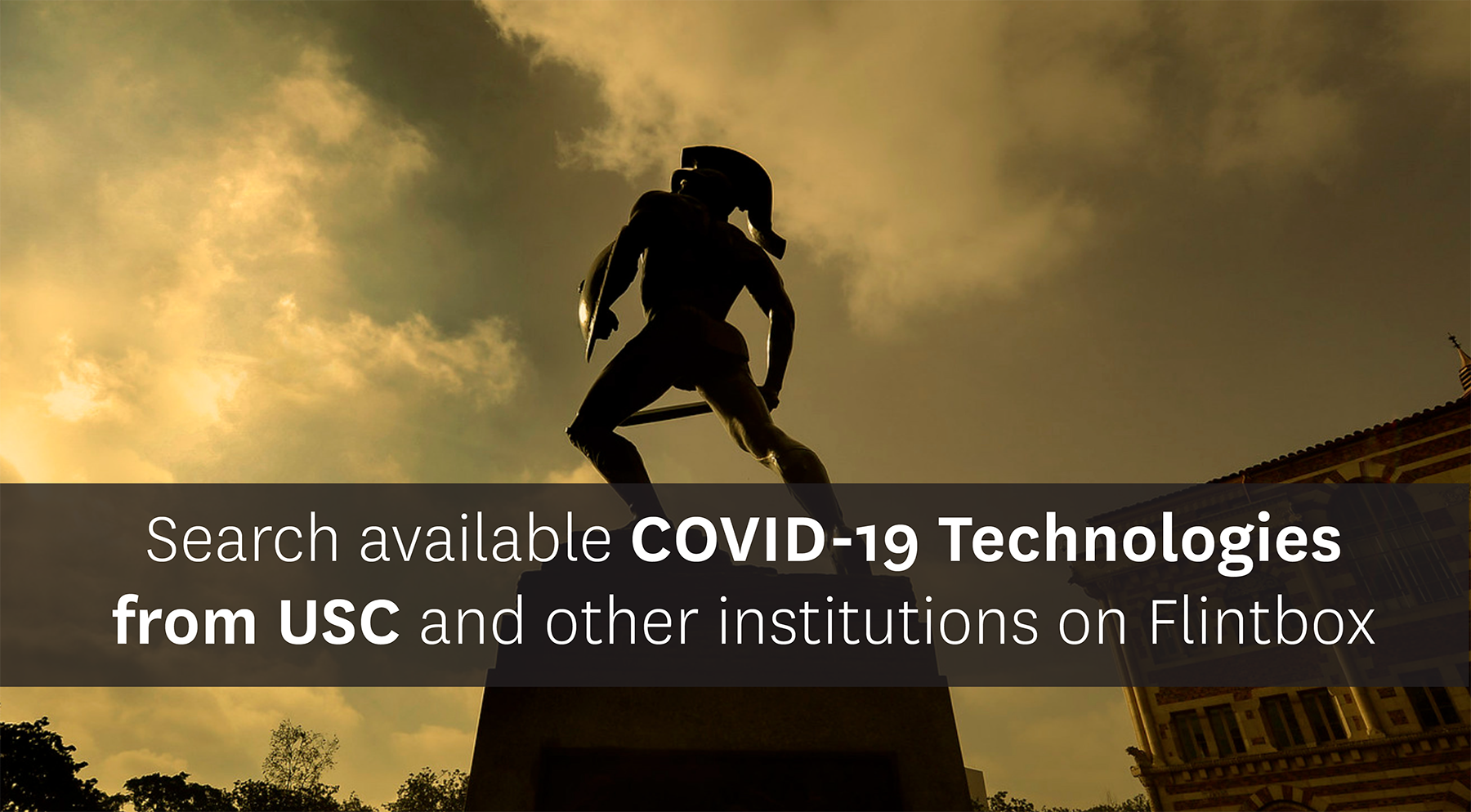USC Stevens Center for Innovation, the technology licensing office for the University of Southern California, has partnered with leading universities worldwide and created a humanitarian use express license agreement to accelerate the transfer and development of COVID-19 discoveries into solutions to treat, diagnose, and prevent the further spread of the virus.
USC signed onto the licensing guidelines developed by AUTM (formerly known as the Association of University Technology Managers). The guidelines set forth principles upon which academic and federal research institutions quickly and fairly share products and services useful in addressing the challenges presented by COVID-19, including the protection of our healthcare and other essential workers. As of April 29, more than 75 institutions have adopted the guidelines. The COVID-19 licensing guidelines are posted on the AUTM website.
“USC’s humanitarian license will expedite access to USC research and discoveries that have the potential to save lives,” said Interim Vice President of Research Maja Matarić.
The Stevens Center for Innovation, together with many worldwide organizations, is posting USC technologies, active projects, links to faculty, and related startups on a dedicated COVID-19 website on Flintbox. The website aims to pull together all COVID-19 resources in one place and help get researchers connected.
Below is the full text of the AUTM COVID-19 Technology Development Framework:
“We strongly believe that while intellectual property rights can often serve to incentivize the creation of new products, such rights should not become a barrier to addressing widespread, urgent and essential health-related needs. To address the global COVID-19 pandemic, we are each implementing technology transfer strategies to allow for and incentivize rapid utilization of our available technologies that may be useful for preventing, diagnosing and treating COVID-19 infection during the pandemic.
“To achieve our common goal, we each individually commit to the following guidelines:
- Technology transfer accelerates innovations that impact society and promotes the broad distribution of public health solutions. We encourage intellectual property (IP) owners to adopt a COVID-19 licensing strategy that facilitates rapid pandemic response by licensees and to make the execution of associated transactions a top priority.
- For most technologies, where legally possible, this strategy is best accomplished by adopting time-limited, non-exclusive royalty-free licenses, in exchange for the licensees’ commitment to rapidly make and broadly distribute products and services to prevent, diagnose, treat and contain COVID-19 and protect healthcare workers during the pandemic (as defined by the World Health Organization).
- Licenses may subsequently convert to a more typical commercial license as appropriate. Licenses must also preserve the licensor’s freedom to publish and use the intellectual property for teaching and research.
